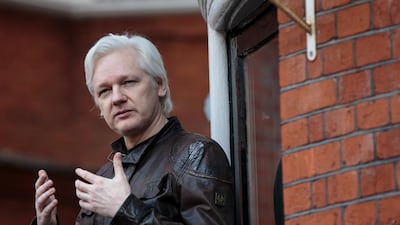I was speaking on a local radio station recently when the subject of the near-endless leaks from American security agencies came up. “They should be prosecuted,” I said of the leakers – prompting a very surprised look from the presenter. His expression conveyed it all. Leakers are whistleblowers; and whistleblowers are courageous individuals who expose hypocrisy and wrongdoing, and deserve support, even as governments pursue them, leaving Julian Assange holed up in the Ecuadorean embassy in London for five years, while Edward Snowden has gained greater familiarity with sub-zero Russian winters than he could ever have expected before he leaked thousands of National Security Agency documents in 2013.
This view is common – expected, even – on the liberal left. “The war on leakers is about to get worse,” was the wailing headline of a recent article in The New Republic. Any attempt to uphold secrecy laws is seen as a restriction on free speech, an act of unwarranted oppression by administrations keen to keep their lies and subterfuge away from public scrutiny. To many, as the CIA director Mike Pompeo pointed out last week, Mr Snowden is a hero. To many others, so is Mr Assange (not withstanding his unsettling history of relations with women).
I would say the opposite, for a number of reasons.
Firstly, it should be noted that there were more leak prosecutions under Barack Obama — arguably the most liberal president since FDR — than there had been during all previous presidencies combined. That a man condemned as a socialist by US conservatives felt that action should be taken against those who violated secrecy laws suggests that having to regard whistleblowers as saintly individuals is not an inherent part of a leftist world view.
Secondly, much diplomatic discussion and many government actions simply cannot be conducted in open daylight. The former British prime minister Sir John Major denied that he was talking to the IRA when he was doing just that – but through necessarily deniable back channels. It was those talks that eventually led to the Good Friday Agreement which brought peace to Northern Ireland. Should we have applauded any individual who exposed those underground discussions? Surely not.
For those like Mr Snowden and Mr Assange who take it upon themselves to challenge, in the name of transparency, the right and the need of government to do business covertly, are in fact dangerous egomaniacs who have caused untold diplomatic embarrassment and may have endangered the lives of many around the world.
This brings me to the third point: who decides? There can be legitimate debate about what should or should not be open for all to know. In the meantime, however, such determinations are properly a matter for the law. The law may change. But if legislation currently standing is not upheld and enforced, the rule of law itself is undermined. And that principle is arguably even more important than that of democracy, of human rights, free speech, good governance or anything else; for none of those stands on firm foundations if the rule of law is not sacrosanct.
There are times, of course, when whistleblowers are deemed to have performed a genuine public service. Had the Watergate source “Deep Throat” been exposed as the then FBI associate director Mark Felt around the time of Richard Nixon’s resignation, rather than decades later, it seems unlikely that a prosecution would have been mounted, even though there is no doubt that he committed a crime.
The decision to break the law by violating legally binding secrecy agreements, however, is a momentous one. In some instances, one might say it involves tremendous courage. In others, though, one might characterise it as an act of colossal presumption and arrogance.
Who decided, for instance, that it was their right to break the law — to decide that they were above the law, or that it did not really apply to them — by leaking the details of former National Security Adviser Mike Flynn’s conversation with the Russian ambassador to the United States?
This is not a question of defending General Flynn, or anyone else associated with the Trump White House. It is to point out a fact that seems to have been somewhat lost in the maelstrom of allegations about possible collusion between the Trump team and Russia: that much of what we know is based on illegal leaks; and it is to state that there should be outrage that so many members of US intelligence agencies – the very services tasked with the preservation of secrets – have placed themselves above the law in order to undermine a duly elected president.
So should the leakers be prosecuted? Most certainly. Those who argue that Gen Flynn’s contacts needed to be exposed, as they left him open to blackmail, ignore the fact that they could and should have been reported via the correct channels. To say that in this case the means were justified by the ends, means that anyone can, should their conscience so direct them, decide that the law doesn’t apply to them. That way lies chaos. It must be clear that no one is above the law – and that includes the many public servants who seem to think they have been given a free pass after a candidate they deem unworthy of office was elected president.
Sholto Byrnes is a senior fellow at the Institute of Strategic and International Studies, Malaysia


